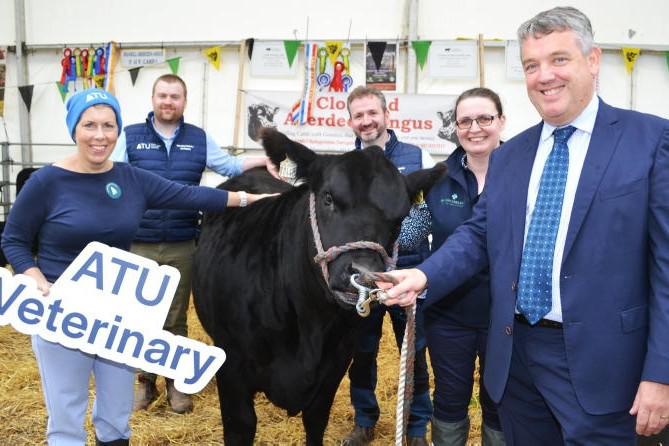The CAO is the process by which people apply for undergraduate courses in Irish Higher Education Institutes (HEIs) only. There are various deadlines and processes that you need to be aware of, take them one at a time. Here are the ones that you need to know and act on now.
1 Prep
Closing date for CAO applications is 1 February. This means that:
You need to have paid your fee, €30 before 20 January and €45 up to 1 February. Filled in the basic information about yourself.Things to take note here
The applicant should be the person filling in this information, not parents. Applicants need to understand the process, HEIs and CAO will only communicate with applicants, not third parties.The applicant’s phone number and personal email, not your school email, should be included. Do not use a parent’s email or phone number. This causes numerous issues every year that lead to applicants missing key information sent.You should tick yes to receiving SMS text messages from CAO and HEIs. Qualifications and Assessment Summary – some applicants fill this in incorrectly.a. If you are applying with a Leaving Certificate, including this years, then tick the box ‘Irish Leaving Certificate Exams (1985 - 2023)’.
b. If you are applying as a FETAC applicant then click this option.
c. You can tick more than one box.
Create a password that you will remember.You will then receive your CAO application number which you should take note of as you will need it in order to log into your CAO account.2 Education information
You can then log into your CAO account and continue with your application process. In this section you need to fill in your educational information.
3 Choosing courses
Applicants can apply for a total of 10 Level 8 courses and 10 Level 6 and 7 courses. Applicants are advised to input the courses in order of preference and not according to course points. You don’t have to fill in all course spaces but having backup courses is important.
You don’t necessarily need to have inputted all your course choices yet – this facility is open until 1 July. However, certain courses are Restricted-Application Courses (see box above). These courses have early assessment procedures which may start as early as February. These do need to be on your application before 1 February.
The CAO website has all the information you need regarding the application process. I would advise applicants and parents to make themselves aware of this and begin to engage and familiarise themselves with the website.
On the home page there is an ‘Applicant’ tab. Clicking here will bring you to various resources that will help with your application. You can download the CAO Handbook, view the CAO video guides, which are excellent and worth the watch, as well as many other resources.
Also on the Home page is a section for parents/guardians. There are some good resources to be found here that will help parents/guardians support their child with their application.
Finally, a useful resource on the CAO website is the ‘interactive demo facility’. This can be found by clicking the green tab ‘Apply’. Here an applicant can do a practice run of how the registration process works. It is excellent at bringing the applicant through the application process.
Restricted Courses
These are courses that require additional assessments eg a portfolio, an oral or written examination or an interview. These courses are clearly marked on CAO as ‘Restricted’ and an applicant must have these courses on their course choices list by 1 February 2023 at 17:00. How do I know what courses are restricted:
Log on to www.cao.ie Click on the ‘Courses’ tab.Under ‘search for title/keyword’ type in Restricted and click go.A full list of all restricted courses will appear and you can click on each of them for further information.
DARE: Disability Access
Route to Education
What is it?
The Disability Access Route to Education (DARE) is a third-level alternative admissions scheme for school-leavers whose disabilities have had a negative impact on their second-level education. DARE is an admission route for those with a disability on a reduced-points basis.
It is important to note that not all colleges participate in this scheme. Participating colleges can be found on www.accesscollege.ie
Who should apply?
An applicant should apply if:
Your disability has had a negative impact on your educational performance in school.You are not able to meet the points for your preferred course due to the impact of your disability. You are under 23 years of age as of 1 January 2023.What disabilities are eligible for consideration?
Numerous disabilities are eligible for consideration, including ADD/ADHD, deaf or hard of hearing, blind or vision impaired, mental health, physical disability and autism. The full list can be found on www.accesscollege.ie
DARE eligibility criteria
In order to be eligible for DARE, there are two main criteria you need to meet:
Educational impact criteria plus,Evidence of disability criteria.Applicants must provide the required evidence of their disability and provide an Educational Impact Statement from their school to be considered for DARE. Every year some students only send one of these and as a result their application cannot be assessed.
What are the benefits?
1 Reduced points for those applying, eg if points for a particular course are 350 points, an eligible DARE applicant could be offered a place with lower points score such as 340. These points reductions are dependent on a number of factors however:
The overall number of places on the course.The number of DARE reserved places.Number of DARE applicants who apply for the course (only those DARE applicants who don’t achieve the points are considered. DARE applicants who get the points will get their place regardless and can still avail of the supports in the college).Applicants will still need to meet entry and programme requirements in order to be considered for DARE.2 DARE applicants are invited to the college before the beginning of term for an orientation programme.
3 There are learning supports.
4 Assistive technology may be supplied depending on an applicant’s needs.
5 There may be exam accommodations.
It is important to note that you don’t have to be eligible for DARE to get in college supports.
How to apply?
1 February: You need to apply for DARE on your CAO application.1 March: You need to complete Section A of the Supplementary Information Form and apply to DARE by answering YES to Question 1 and fully complete questions 1-5. If you want to carry forward your DARE then mark Question 1(b). 15 March: The Educational Impact Statement and Evidence of Disability needs to be posted and reach CAO by 15 March.You can apply to both HEAR and DARE and if successful these applicants are prioritised.Helpful tips
Download and read the DARE handbook at www.accesscollege.ie.Only send copies of documents and include all pages.Put your CAO number and your name on all documentation that you send.Keep proof of postage.Speak with your guidance counsellor, special education needs teacher, year head, deputy principal or principal.Ensure your proof of disability is issued by the correct professional, eg if you are applying under a mental health condition then a report from a psychiatrist is required, not from your GP.Reports for ADD/ADHD, mental health conditions and significant ongoing illnesses must be less than three years old, ie dated after 1 February 2019.Other reports, such as a specific learning difficulty issued by a psychologist, are not date-sensitive. However, it is important that you check these out before submitting.Don’t leave it until the last minute to get documentation together.Check the deadlines and ensure you give yourself plenty of time to get the information needed and post in plenty of time. For all information on DARE applications visit www.accesscollege.ie and click the DARE tab.
HEAR: Higher Education
Access Route
What is it?
This is for school leavers who for social, financial or cultural reasons are under-represented in third-level education. School leavers of higher professionals are significantly more likely to go on to third-level than other socioeconomic groups.
Who should apply?
You should apply if you meet the first criteria below and the right combination of two other indicators:
1 Your household income was at or below €46,790 in 2021.
2 Your family had a Medical Card or GP Visit Card in date on 31 December 2022.
3. Your parents received a means-tested social welfare payment for at least 26 weeks in 2020.
4 Your parents’/guardians’ employment status is under-represented in higher education, eg non-manual workers, semi-skilled and unskilled manual workers or agricultural workers.
5 You have attended a DEIS second-level school for five years.
6 You live in an area of concentrated disadvantage.
The combination can be
1 + 2 + (4 or 5 or 6)
1 + 3 + (4 or 5 or 6)
1 + 4 + (5 or 6)
1+ 5 + 6
Why should you apply?
Reduced points for those applying, eg if points for a particular course are 350, an eligible HEAR applicant could be offered a place with a lower points score such as 340. These points reductions are dependent on a number of factors:
The overall number of places on the course.The number of HEAR reserved places.Number of HEAR applicants who apply for the course (only those HEAR applicants who don’t achieve the points are considered. HEAR applicants who get the points will get their place regardless and can still avail of the supports in the college).Applicants will still need to meet entry and programme requirements in order to be considered for DARE.
How to apply?
1 February: You need to apply for HEAR? on your CAO application1 March: You need to complete all sections of the online HEAR application form by 17:00. When you have completed this section, you will receive a checklist which tells you what documents you need to complete your application. 15 March: Clear copies of supporting documents need to be posted and reach CAO by 15 March.You can apply to both HEAR and DARE and if successful these applicants are prioritised.It is important that you begin this as soon as possible because some documents may take some time to get!
Helpful tips
Download and read the HEAR handbook at www.accesscollege.ieComplete the online application on your CAO.Only send copies of documents and include all pages, remember to get these as early as you can.The most common errors are applicants sending the wrong Revenue document.Put your CAO number and your name on all documentation that you send.Keep proof of postage.Speak with your guidance counsellor, year head, deputy principal or principal if you are unsure of anything.Watch for the deadlines.HEAR is not SUSI and if you are apply to HEAR you should also apply for SUSI.
For all information on HEAR applications visit www.accesscollege.ie and click the HEAR tab.
Repeating the Leaving
Certificate and applying
for DARE and or HEAR
Students who are repeating the Leaving Certificate and applied for HEAR and or DARE last year and were successful then you can carry forward this for one year only. You need to apply by 1 February 2023 and indicate that you wish to apply to HEAR and or DARE by 1 March. You must supply your correct CAO 2022 application number. You are still required to complete all relevant sections however you will not need to supply supporting documents. Read more
Young entrepreneur building agribusinesses
‘Don’t be afraid of opportunities that come your way’
The CAO is the process by which people apply for undergraduate courses in Irish Higher Education Institutes (HEIs) only. There are various deadlines and processes that you need to be aware of, take them one at a time. Here are the ones that you need to know and act on now.
1 Prep
Closing date for CAO applications is 1 February. This means that:
You need to have paid your fee, €30 before 20 January and €45 up to 1 February. Filled in the basic information about yourself.Things to take note here
The applicant should be the person filling in this information, not parents. Applicants need to understand the process, HEIs and CAO will only communicate with applicants, not third parties.The applicant’s phone number and personal email, not your school email, should be included. Do not use a parent’s email or phone number. This causes numerous issues every year that lead to applicants missing key information sent.You should tick yes to receiving SMS text messages from CAO and HEIs. Qualifications and Assessment Summary – some applicants fill this in incorrectly.a. If you are applying with a Leaving Certificate, including this years, then tick the box ‘Irish Leaving Certificate Exams (1985 - 2023)’.
b. If you are applying as a FETAC applicant then click this option.
c. You can tick more than one box.
Create a password that you will remember.You will then receive your CAO application number which you should take note of as you will need it in order to log into your CAO account.2 Education information
You can then log into your CAO account and continue with your application process. In this section you need to fill in your educational information.
3 Choosing courses
Applicants can apply for a total of 10 Level 8 courses and 10 Level 6 and 7 courses. Applicants are advised to input the courses in order of preference and not according to course points. You don’t have to fill in all course spaces but having backup courses is important.
You don’t necessarily need to have inputted all your course choices yet – this facility is open until 1 July. However, certain courses are Restricted-Application Courses (see box above). These courses have early assessment procedures which may start as early as February. These do need to be on your application before 1 February.
The CAO website has all the information you need regarding the application process. I would advise applicants and parents to make themselves aware of this and begin to engage and familiarise themselves with the website.
On the home page there is an ‘Applicant’ tab. Clicking here will bring you to various resources that will help with your application. You can download the CAO Handbook, view the CAO video guides, which are excellent and worth the watch, as well as many other resources.
Also on the Home page is a section for parents/guardians. There are some good resources to be found here that will help parents/guardians support their child with their application.
Finally, a useful resource on the CAO website is the ‘interactive demo facility’. This can be found by clicking the green tab ‘Apply’. Here an applicant can do a practice run of how the registration process works. It is excellent at bringing the applicant through the application process.
Restricted Courses
These are courses that require additional assessments eg a portfolio, an oral or written examination or an interview. These courses are clearly marked on CAO as ‘Restricted’ and an applicant must have these courses on their course choices list by 1 February 2023 at 17:00. How do I know what courses are restricted:
Log on to www.cao.ie Click on the ‘Courses’ tab.Under ‘search for title/keyword’ type in Restricted and click go.A full list of all restricted courses will appear and you can click on each of them for further information.
DARE: Disability Access
Route to Education
What is it?
The Disability Access Route to Education (DARE) is a third-level alternative admissions scheme for school-leavers whose disabilities have had a negative impact on their second-level education. DARE is an admission route for those with a disability on a reduced-points basis.
It is important to note that not all colleges participate in this scheme. Participating colleges can be found on www.accesscollege.ie
Who should apply?
An applicant should apply if:
Your disability has had a negative impact on your educational performance in school.You are not able to meet the points for your preferred course due to the impact of your disability. You are under 23 years of age as of 1 January 2023.What disabilities are eligible for consideration?
Numerous disabilities are eligible for consideration, including ADD/ADHD, deaf or hard of hearing, blind or vision impaired, mental health, physical disability and autism. The full list can be found on www.accesscollege.ie
DARE eligibility criteria
In order to be eligible for DARE, there are two main criteria you need to meet:
Educational impact criteria plus,Evidence of disability criteria.Applicants must provide the required evidence of their disability and provide an Educational Impact Statement from their school to be considered for DARE. Every year some students only send one of these and as a result their application cannot be assessed.
What are the benefits?
1 Reduced points for those applying, eg if points for a particular course are 350 points, an eligible DARE applicant could be offered a place with lower points score such as 340. These points reductions are dependent on a number of factors however:
The overall number of places on the course.The number of DARE reserved places.Number of DARE applicants who apply for the course (only those DARE applicants who don’t achieve the points are considered. DARE applicants who get the points will get their place regardless and can still avail of the supports in the college).Applicants will still need to meet entry and programme requirements in order to be considered for DARE.2 DARE applicants are invited to the college before the beginning of term for an orientation programme.
3 There are learning supports.
4 Assistive technology may be supplied depending on an applicant’s needs.
5 There may be exam accommodations.
It is important to note that you don’t have to be eligible for DARE to get in college supports.
How to apply?
1 February: You need to apply for DARE on your CAO application.1 March: You need to complete Section A of the Supplementary Information Form and apply to DARE by answering YES to Question 1 and fully complete questions 1-5. If you want to carry forward your DARE then mark Question 1(b). 15 March: The Educational Impact Statement and Evidence of Disability needs to be posted and reach CAO by 15 March.You can apply to both HEAR and DARE and if successful these applicants are prioritised.Helpful tips
Download and read the DARE handbook at www.accesscollege.ie.Only send copies of documents and include all pages.Put your CAO number and your name on all documentation that you send.Keep proof of postage.Speak with your guidance counsellor, special education needs teacher, year head, deputy principal or principal.Ensure your proof of disability is issued by the correct professional, eg if you are applying under a mental health condition then a report from a psychiatrist is required, not from your GP.Reports for ADD/ADHD, mental health conditions and significant ongoing illnesses must be less than three years old, ie dated after 1 February 2019.Other reports, such as a specific learning difficulty issued by a psychologist, are not date-sensitive. However, it is important that you check these out before submitting.Don’t leave it until the last minute to get documentation together.Check the deadlines and ensure you give yourself plenty of time to get the information needed and post in plenty of time. For all information on DARE applications visit www.accesscollege.ie and click the DARE tab.
HEAR: Higher Education
Access Route
What is it?
This is for school leavers who for social, financial or cultural reasons are under-represented in third-level education. School leavers of higher professionals are significantly more likely to go on to third-level than other socioeconomic groups.
Who should apply?
You should apply if you meet the first criteria below and the right combination of two other indicators:
1 Your household income was at or below €46,790 in 2021.
2 Your family had a Medical Card or GP Visit Card in date on 31 December 2022.
3. Your parents received a means-tested social welfare payment for at least 26 weeks in 2020.
4 Your parents’/guardians’ employment status is under-represented in higher education, eg non-manual workers, semi-skilled and unskilled manual workers or agricultural workers.
5 You have attended a DEIS second-level school for five years.
6 You live in an area of concentrated disadvantage.
The combination can be
1 + 2 + (4 or 5 or 6)
1 + 3 + (4 or 5 or 6)
1 + 4 + (5 or 6)
1+ 5 + 6
Why should you apply?
Reduced points for those applying, eg if points for a particular course are 350, an eligible HEAR applicant could be offered a place with a lower points score such as 340. These points reductions are dependent on a number of factors:
The overall number of places on the course.The number of HEAR reserved places.Number of HEAR applicants who apply for the course (only those HEAR applicants who don’t achieve the points are considered. HEAR applicants who get the points will get their place regardless and can still avail of the supports in the college).Applicants will still need to meet entry and programme requirements in order to be considered for DARE.
How to apply?
1 February: You need to apply for HEAR? on your CAO application1 March: You need to complete all sections of the online HEAR application form by 17:00. When you have completed this section, you will receive a checklist which tells you what documents you need to complete your application. 15 March: Clear copies of supporting documents need to be posted and reach CAO by 15 March.You can apply to both HEAR and DARE and if successful these applicants are prioritised.It is important that you begin this as soon as possible because some documents may take some time to get!
Helpful tips
Download and read the HEAR handbook at www.accesscollege.ieComplete the online application on your CAO.Only send copies of documents and include all pages, remember to get these as early as you can.The most common errors are applicants sending the wrong Revenue document.Put your CAO number and your name on all documentation that you send.Keep proof of postage.Speak with your guidance counsellor, year head, deputy principal or principal if you are unsure of anything.Watch for the deadlines.HEAR is not SUSI and if you are apply to HEAR you should also apply for SUSI.
For all information on HEAR applications visit www.accesscollege.ie and click the HEAR tab.
Repeating the Leaving
Certificate and applying
for DARE and or HEAR
Students who are repeating the Leaving Certificate and applied for HEAR and or DARE last year and were successful then you can carry forward this for one year only. You need to apply by 1 February 2023 and indicate that you wish to apply to HEAR and or DARE by 1 March. You must supply your correct CAO 2022 application number. You are still required to complete all relevant sections however you will not need to supply supporting documents. Read more
Young entrepreneur building agribusinesses
‘Don’t be afraid of opportunities that come your way’









SHARING OPTIONS